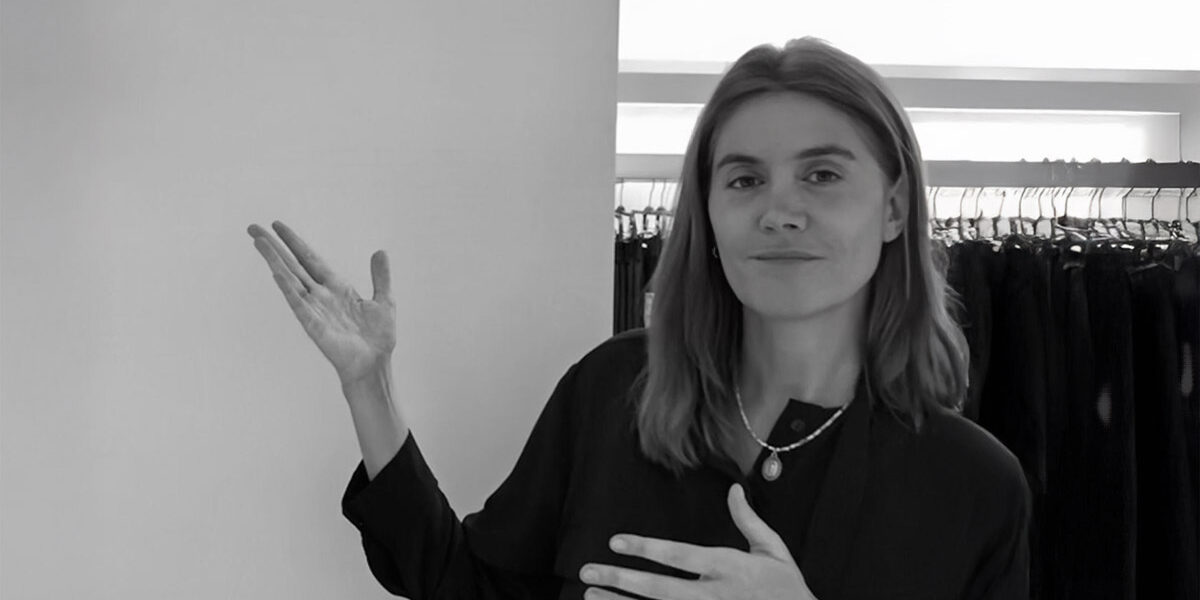Anna Lottersberger, DEAN of Ferrari Fashion School, interviewed Gabriela Moschini, a professional with an MBA and extensive experience in the fashion industry, having held merchandising roles at brands such as Prada, Max Mara, and Roberto Cavalli. During the interview, Gabriela shared her journey in the world of fashion buying, explaining how the role has evolved with the advent of omnichannel strategies and the integration of new technologies. She also highlighted the importance of balancing data, intuition, and experience to make strategic purchasing decisions.
Gabriela advised aspiring fashion buyers to focus on technical preparation and develop strong interpersonal skills to collaborate effectively with various company departments—an essential aspect for success in this field.
Can you tell us about your journey in the fashion industry and how you became a fashion buyer?
I began working in fashion shortly after completing my MBA. Although I had prior experience as a purchaser and was strong with numbers, I didn’t have direct experience in the fashion industry—only a passion for it. I was fortunate to find a brand that recognized the importance of gaining knowledge to develop the skills needed for such a dynamic role within the company.
What are the different job descriptions, tasks and competences within the ‘fashion buyer’ label?
I would distinguish between two main types of buyers: a retail buyer, sometimes referred to as a retail merchandiser, and a fashion buyer for multibrand stores. While both roles involve selecting merchandise for stores, a retail buyer focuses on purchasing for a single brand across multiple directly operated stores, whereas a fashion buyer works with various brands to curate a balanced brand and product mix. Both roles require strong analytical skills, a keen fashion sense, comfort with numbers, and a great deal of flexibility and multitasking!
How has the role of a fashion buyer in the luxury market changed over the years, especially with the rise of e- and social commerce?
It has changed significantly, evolving from a focus on multibrands to the rise of monobrands, and now it’s all about omnichannel strategies, making things more complex, yet more interesting.
What emerging trends do you see shaping the future of fashion in the next five years?
Technology will undoubtedly play a crucial role in reshaping the industry, from augmented and virtual reality enhancing phygital experiences to the integration of AI across every part of the business from design to retail.
What role does data and analytics play in your buying decisions, and how do fashion buyers integrate it with intuition and experience?
The role of the analysis I would say is fundamental. Studying past sales and current performances while keeping an eye on the current trends on the market is key to an accurate (as possible!) buying plan. Experience and intuition play and important part but is already important to start on solid grounds.
I recommend that buyers spend time in stores, observing customer behavior and preferences, to make more informed decisions. Don’t limit yourself to your desk or computer.
Can you share a time when a particular buying decision didn’t go as planned? What did you learn from that experience?
Relying solely on numbers can sometimes result in misguided buying decisions. I recall a time when I made poor choices by basing myself too much on numbers and not fully considering that the product we had in the stores wasn’t “the right product, at the right time”. Thankfully, my job involves interacting with different roles within the company, which helped me recognize the flaws and make quick decisions to address the issue. What I’ve learned was to be humble and more open to listening to people who know about the brand, the market and the customers, although the final responsibility is yours.
What advice would you give to someone aspiring to become a buyer in the luxury industry?
Fashion buying is a hectic and demanding role that includes a wide range of activities and requires close collaboration with multiple departments within the company. Beyond the technical complexities, the role also requires diplomacy and strong relationship skills. My advice is to prepare yourself at school as best as possible on the required knowledge, there are many other skills that you can acquire later.






